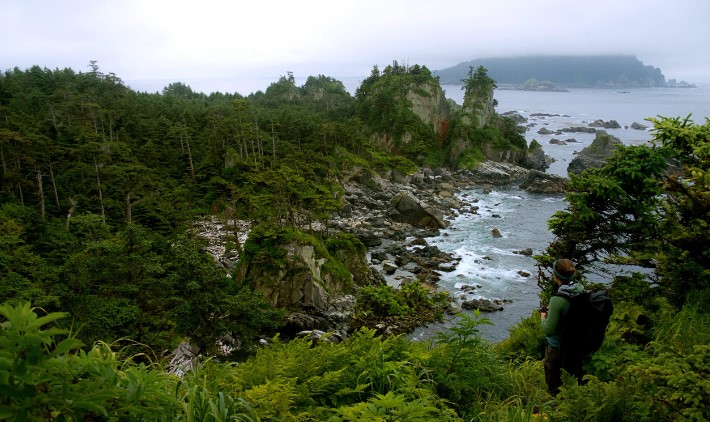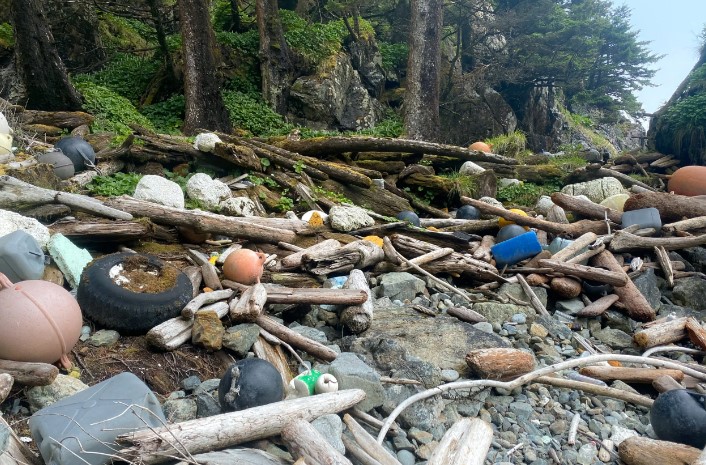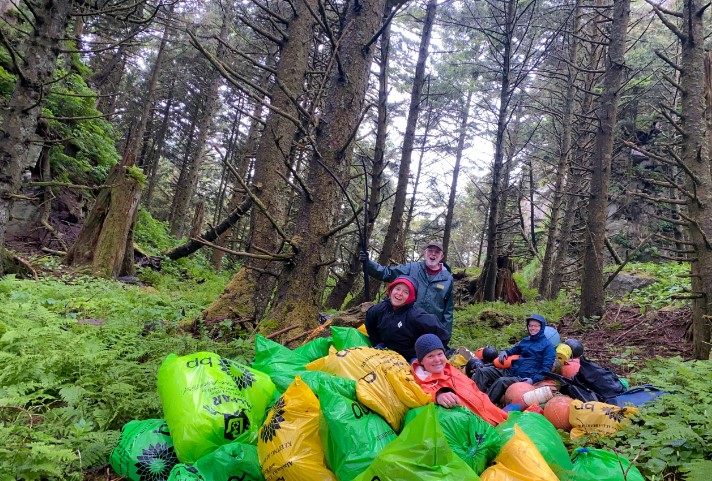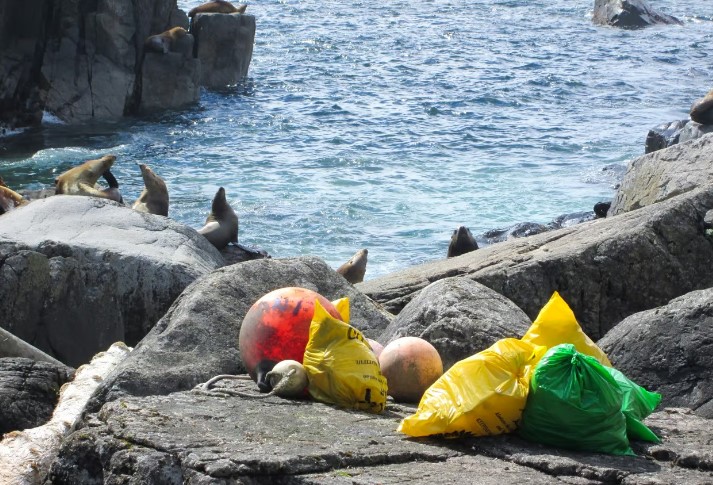Free the Ocean Blog
A Hidden Paradise Plagued by Plastic
Picture an island utopia brimming with thousands of sk’yuuwan (Steller sea lions) and countless seabirds. This is Gasḵúu, a remote island complex situated on Haida land off the coast of Alaska. Surprisingly, despite having no permanent inhabitants, an alarming amount of marine debris has been discovered.

Photo credit: Kristina Scheufelt
An Unwelcome Invasion of Trash
During a 2018 study on sk’yuuwan, researchers found the beaches covered in tires, buoys, plastic bottles, and more. How could a remote island untouched by humans accumulate so much waste?
Thanks to funding from the NOAA Marine Debris program, a cleanup effort was organized. It was discovered that Gasḵúu collects trash from around the globe, carried there by ocean currents. Over one month, the team removed 11,663 pounds of marine debris, with most of the waste being recycled. However, even the tiniest pieces, known as microplastics, can have a significant impact.

Photo credit: Kitt Cunningham
The Threat of Microplastics
Microplastics are minuscule plastic fragments smaller than 5 mm that can accumulate in the environment, causing harm to marine wildlife. These tiny particles can absorb toxins, take up space in animals’ digestive tracts without offering nutritional value, and even release hazardous chemicals. Identifying the types of plastics that break down and integrate into marine ecosystems will help protect marine wildlife, while also saving time and money.
This year, researchers will analyze biological samples from sk’yuuwan and Cassin’s auklets to search for microplastics. If found, the chemical composition of these particles will be examined to determine whether they are accumulating in the Alaskan marine food web and to identify their sources.

Photo credit: Kitt Cunningham
Moving Toward Plastic-Free Seas
Understanding where plastic waste originates from and how it affects marine ecosystems can help drive policy changes that promote a cleaner environment. By addressing the issue of marine debris, we can work towards a sustainable future and plastic-free seas. The challenge is significant, but together, we can make a difference.






